Saying goodbye: Retiring teachers talk about their time at Lowell and what’s next for them
Andrew Ishibashi, principal
by Kristen Yeung
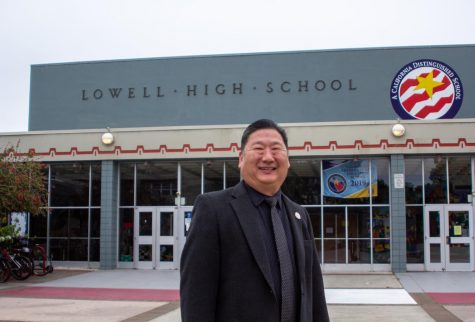
After 12 years at Lowell, Principal Andrew Ishibashi is retiring to take care of his family. He is looking forward to continuing his work helping disadvantaged and minority students beyond Lowell.
What led you to become the principal of Lowell?
When I was a teacher, I’d ask [my students] if they were going to college. My students said they weren’t going to college because they could not afford it and they didn’t have the grades and the self esteem. But I would require them to apply for college to get an “A” in my class because at the end of your life, don’t say, “what if,” say, “I did it” or “I gave it my best shot.” And at my school, there were things happening, and I used to always say, “Well if I was a principal…” and they said, “Mr. Ishibashi, you need to become a principal, because don’t say what if, give it your best shot!”
What are some of your favorite memories from your time at Lowell?
I remember multiple senior proms [at Lowell] where the prom fell on my birthday and the whole senior class sang “Happy Birthday” to me. One of the biggest things I remember is at the beginning of my second year in August, I lost three family members in a car accident, and I was gone for a month. When I came back, there were messages of condolences all over my entire office. The [Lowell community] sent my family in Los Angeles tens of thousands of dollars. I almost didn’t even come back, but I had to come back because I had to repay, I had to give back what the Lowell community did for my family. Getting my first, second and third California Distinguished School Awards, Gold Ribbon, National Blue Ribbon, going to Washington D.C. for my work on closing the achievement gap [at Lowell], more students of color getting scholarships and awards, [and] hearing Mayor Ed Lee speak. He gave me his first San Francisco Principal of the Year Award, all of these accolades and now, of course, the State of California High School Principal of the Year [Award]. All these accolades were not about me, they were about how the community cares about me, the students and some staff. There are always people who are going to dislike you, but all of these things, I will hold dear to my heart. These are the things that I will always remember about Lowell: the students, the staff and the community.
Why did you decide to retire?
I had planned to retire in 2020, the reason being my mom has dementia and Alzheimer’s, and this past year has been really rough on my entire family. I’m the type of person that will pull my family together, and although my family did not want me to retire this year, my mom will not know me next year, or may not, and to put a dollar figure on that, and put others ahead of my own family, I just can’t do that. Yes, I’d make more money next year, but how do you put a dollar figure on your last years with your mom?
What are you looking forward to when you retire? What are your plans?
I’m looking forward to the reason I retired, taking care of my mom and my dad, who I am blessed are still alive at 90 and 94 years. [I’m looking forward] to spoiling them, to going back to my home that I’ve been renting out for the last 18 years, fixing that up, to seeing my friends who I grew up with, who continue to stay in touch with me. I think I’m going to volunteer and be a consultant helping disadvantaged students and students of color. I think that’s been a calling for me, and I think that’s something God wants me to do.
Francisco Rosales, math teacher
by Seamus Geoghegan
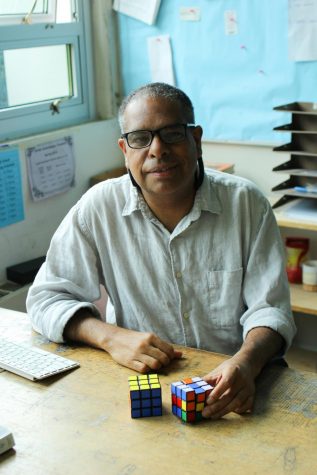
Geometry and pre-calculus teacher Francisco Rosales is retiring after 19 years at Lowell. In his almost two decades at Lowell, he has grown to love teaching mathematics and has become a charismatic cornerstone of the math department. Now, with more free time on his hands, Rosales is looking forward to turning his attention toward his passions of traveling and computer programming.
What will you miss when you retire from Lowell?
I will miss getting up early in the morning. I’m usually the first one here. Sometimes it is just me and Jane, the one who opens the building, and I see the coyotes very early in the morning.
What led you to become a teacher in the first place?
I remember that I was the kid who explained algebra to the other kids [in school], chemistry and physics [too]. I couldn’t do anything else, that was the only thing I could do, so I said, “I think I want to be a school teacher.” I am also very intrigued to see how people learn. I’ve been intrigued by it since I was a kid, like almost seven.
Why did you decide to retire?
Because I want to move to Spain. My wife and I have been considering it, so I want to go to Spain while I still have some time. I don’t have to speak English there, number one, and number two, because it’s not Venezuela; it’s too dangerous in Venezuela.
What do you look forward to when you retire?
I am looking forward to writing computer programs in Python and in Java because I want to become familiar with other languages. I started [coding] about 25 years ago, probably more than that. I took classes in college in Texas. Most of the programming that we were doing [there] was programming directed at businesses.
Stephen Torres Esquer, special education teacher
by Bella Paterson
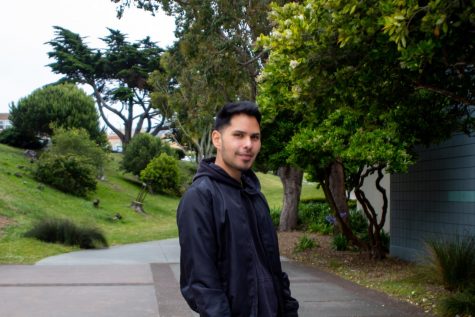
Learning resources and inclusion specialist Stephen Torres Esquer is finishing his fourth and last year here at Lowell. A passionate special education teacher, he won the Region 4 2018-2019 Educator of the Year Award. Before coming to Lowell, he taught at Thomas Edison Charter Academy for one year and also worked as an intern. Although Torres Esquer’s time teaching in the learning resources and special education department has come to a close, he plans to continue to raise ability awareness in his new teaching job at Edison High School in Stockton, California.
What did you teach at Lowell?
I taught multiple subjects in the learning resources department. I was also an inclusion specialist, which means that part of my job was to make sure that we have an inclusive community at Lowell, and that we are able to work together, regardless of age, race, gender, preference, color, and ability. I have worked hard to push boundaries and to create more inclusion and awareness, specifically for people with disabilities, during my time at Lowell. Special education has become “cool” and highly sought after by students of literally all ability levels and walks of life.
Why are you leaving Lowell?
I’m very sad to leave, but my siblings are troubled, and I am determined to give my nieces access to a brighter future. It would be impossible for me to do this for myself, let alone my nieces, on a San Francisco Unified [School District] teacher salary. I can earn more and pay less in another city, which means that, eventually, I can purchase a home, save for retirement, send my nieces to college, stuff like that. None of these options are available to me in San Francisco.
Where will you go and do you plan to continue teaching?
I will move to Stockton, California and teach at Edison High School. While I’m not happy to be leaving, I’m excited to be “taking the ‘dis’ out of disability” in an all new city! I have been asked to recreate the program I’ve created here, and I absolutely plan to turn that city upside down! I will also continue to work with my organization, The Direction: Ability Advocates. I will add to my “Ability Books” book series. I’m filming a new season of “Keeping Up with Mr. Stephen,” an online series on disability and I will be speaking at conferences, festivals, parties and other events all over California.
How did you find yourself teaching special education at Lowell?
I had been offered a job at Lowell and a job at George Washington. Lowell was much closer to the house I was living in. Seeing as how I’m on MUNI, Lowell was the obvious choice.
What is your favorite thing about teaching? What are some things teaching at Lowell has taught you?
Teaching comes with a certain amount of power and influence. If you have the right approach, you can reach audiences far beyond your classroom. It’s important to me that I use that power to change the world. Not just my classroom, not just San Francisco, not just California, the world! People need to be educated when it comes to disability and special education. There is nothing wrong with either of these terms, but so much stigma is attached [to these terms] which can lead people to ignorance and/or prejudice. Because of my role as a teacher, and because I don’t mind shaking things up, I get to be someone who makes it comfortable to be a person with different abilities and/or to interact with people who have different abilities! I’m able to lead conversations that lead others in the right direction. It’s great!
What are some of your favorite memories from your time here at Lowell?
I have made so many friends and I’ve built so many amazing relationships. Overall, it’s great to look back at the good times and the bad times because I’ve been lucky enough to have many Lowell staff [members] and students at my side for all of it.
What do you think you will miss most when you leave?
The people!
Ivan Yee, assistant principal
by Pierre Dayon
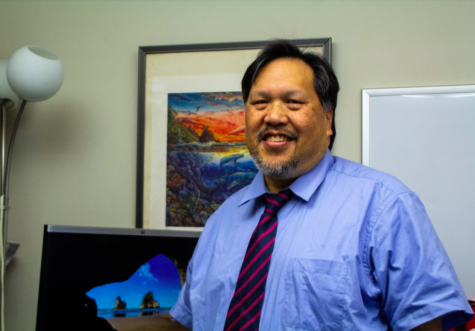
Class of 1976 alumni, former dean and current interim assistant principal, Ivan Yee is thankful for the experiences he has had working in Lowell administration for the past 11 years. He is looking forward to spending his retirement working on industrial art projects.
What have been your favorite memories at Lowell?
Working with the students, recommending students for college, [writing] letters of recommendation, handing out scholarships. Those are lasting memories. To see students who come back to visit Lowell. Just the other day, I saw a student who had graduated 10 years ago, and I remember having a conversation with him when he was a student on the first floor outside of room 132. We were just talking about what he was going to do after graduation, how he was going to go into auto body. [When he came back to visit], he told me that he ended up doing that, and he had worked his way up through the ranks from one job to another and had become general manager at the place he was working. It’s been fun. I’m a Lowell alumni and I’ve always wanted to work at Lowell, so when I was offered the chance to come here, I took it.
Why did you decide to retire?
Several reasons, one is related to health, but I also want to do it while I can still enjoy life and work on projects I want to complete. Back when I was a teacher, I was an industrial arts teacher, so that’s how I started in the district. I love working with my hands. I have a car collection that I want to play with. I have houses and projects I’d like to get done.
Can you tell me more about industrial arts?
At one time in San Francisco Unified, back when I went to middle school many years ago, my school had shop classes that every student had to take, so we had metal shop, we had print shop, we had a woodshop. We had that at every middle school. At the high school level, there were certain shops that existed within the comprehensive schools. Washington [High School] had an auto shop, as well as Galileo, McAteer, which became SOTA, Woodrow Wilson, Mission and John O’Connell, but not Lowell. I always really enjoyed working with my hands. I ended up taking summer school just to take auto shop.
Is there anything else you’d like to add?
You know, working at Lowell has been a real joy. Working with the students and walking the halls I walked, it’s just been great.
Theodore Johnson, science teacher
by Elyse Foreman
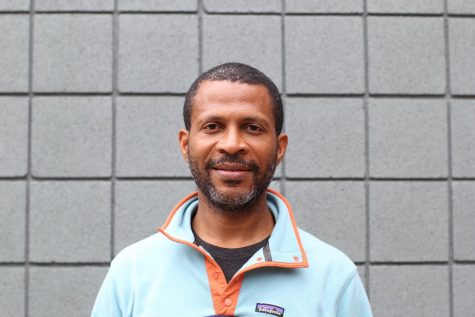
In his second-floor classroom, Theodore Johnson is always on his feet. Throughout the school day, he rotates between two standing desks to adjust algorithms that interpret student grades and organize class curriculum. Johnson has been teaching for 22 years and has spent 14 years teaching AP Biology at Lowell. Now, his time at Lowell has come to an end. He is moving with his family to Stockholm, Sweden to begin a new phase of his life.
What got you into teaching?
When I was in graduate school, I originally went there to do a PHD in pathobiology and medicine. In my second year, I was teaching undergrads and I actually enjoyed the teaching part more than the research part, so after I got my master’s I decided to take a leave from the program for a year and do a master’s in teaching at the same school. I just switched departments. I got a master’s in teaching, and I decided that that’s what I wanted to do. I kind of stumbled upon it.
How did you get to Lowell?
When I came to SF, I didn’t plan on working right away. In fact, I was going to take a year off work because at the time I had a young child and we didn’t want to put her in day care. We moved here because my wife got a job and I was going to stay home with Clara, but then I realized that being this home-parent thing is actually harder than work. I stayed home with her for the full fall semester, and then I decided to go back to work. I went to the school department and applied, and, of course, with my credentials it was easy to find work. I interviewed at several schools, and I got offered all of the positions. I had never taught at a high-performing school like Lowell before (in Providence it was usually low-performing schools I taught at) so I decided to take Lowell because I wanted to do something different and grow in a different way. I started in January, so it was a new position that opened up funded by the alumni association. The school had more control over who was being hired than if it was a summer hire, which would most likely be a transfer from another school with more seniority. I came in without seniority.
What is the biggest risk you’ve taken in teaching? How has it paid off?
I think probably shifting from using the textbook as the primary source to trying to develop my own content. That was a huge leap. It also was a way for me to challenge myself to grow and really think more deeply about the content. A lot of the stuff I use I developed over years, and some of it still needs refining. That was a big risk because if it all had flopped and I had really low AP Exam scores, it would have reflected badly on me, but the first year I did it I actually had the best results and every student passed their AP exams. That was the biggest risk–just completely going into the unknown.
What is your favorite memory from Lowell?
When I first got to Lowell, the culture here was so different than what I was used to in other schools. It’s changed a bit since–the class schedule–but we used to have swing mods, and what really struck me when I arrived was that there was a sort of ordered chaos in the halls all the time. You go out in the hall and there are students out there all day long. At first I was shocked, because at any other school I had taught at before you couldn’t let students be that free, because there would be chaos and fights and craziness. Then I came to Lowell, where kids would be sitting out in the hall and socializing, working on homework, and I was like, “Wow, this is great!” I really appreciated it, and it had a positive effect on me, because the students felt like college students who would treat each other with respect, say please and thank you and how can I help. That’s been a good memory.
Why are you moving?
My wife is a feminist security scholar. She’s famous. She got a job with the Swedish Defense University to help them rethink the way they interact with women. The Swedish military does a lot of peacekeeping in a lot of conflict areas and are often working with women and children, but the military is still a male institution, so while they’re working with women and children they don’t have a lot of the skills to be able to interact with women. The Swedish military wants to bring a lot of feminist thought into how they train their military officers. [My wife] is going to be helping them make that transition.
Do you plan to continue teaching in Europe?
I don’t have any definite plans to go back to work because I want to keep my options open; I want to go there and see what it’s like. I would like to explore something else, but still in education. Whether or not I’ll teach in a classroom, I’m not sure. I might go into curriculum development, content development, or go into technology and developing learning systems.
Do you have a message for future students?
I have a student who, I don’t know the details, but a really great student with excellent grades, who didn’t get into the college that he should’ve gotten into. That can be a shock for any student. The one thing I would say is: Lowell is an amazing place, but it’s not just about academics. Colleges are not just looking at academics. Take your academic classes seriously, but also keep a balance–there’s a lot more that the school has to offer. Get involved in clubs that you’re interested in, not just for a resume. Go out and have fun with your friends and enjoy life. Balance your academic courses more with classes on subjects that you’re interested in learning. Don’t focus on AP courses.
History teacher Matthew Prophet is also retiring, but he declined to be interviewed by The Lowell.
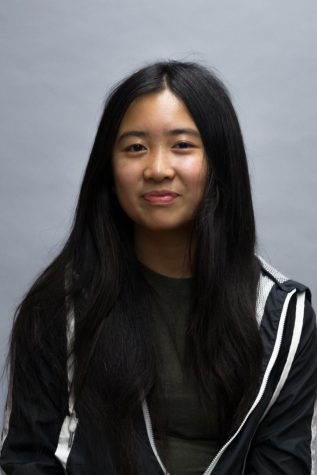
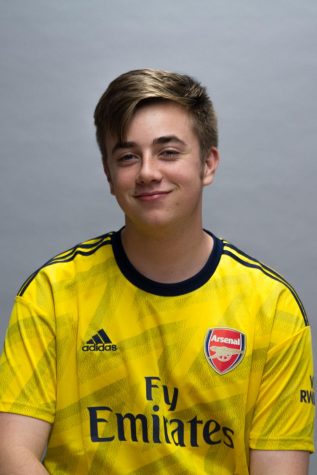
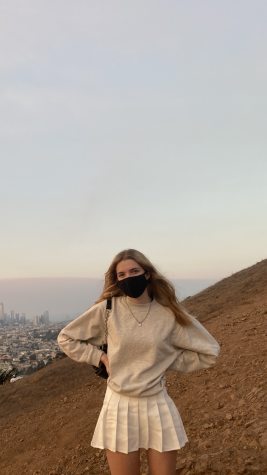
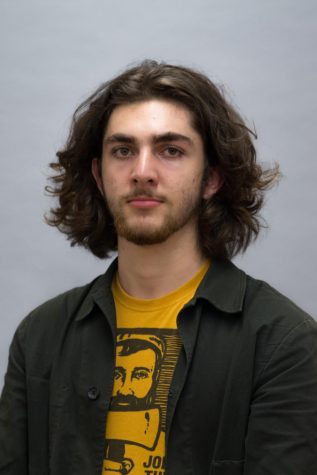



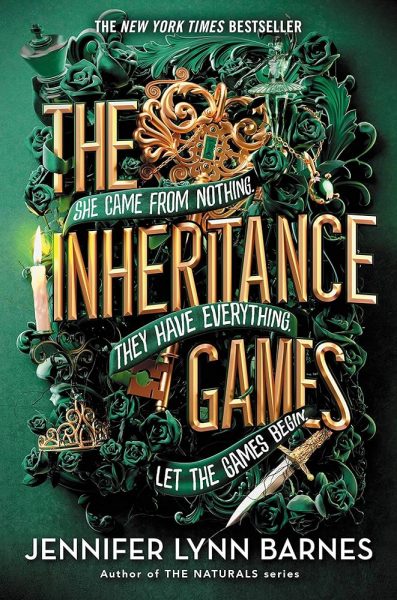
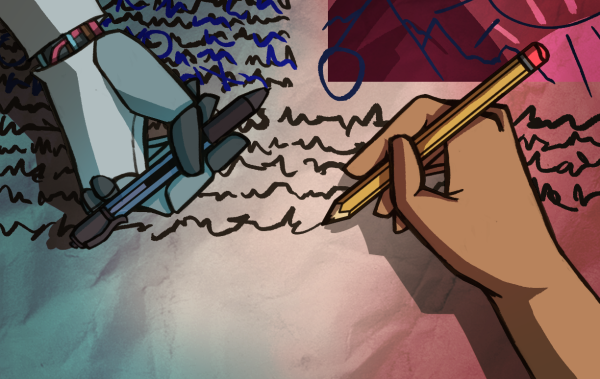


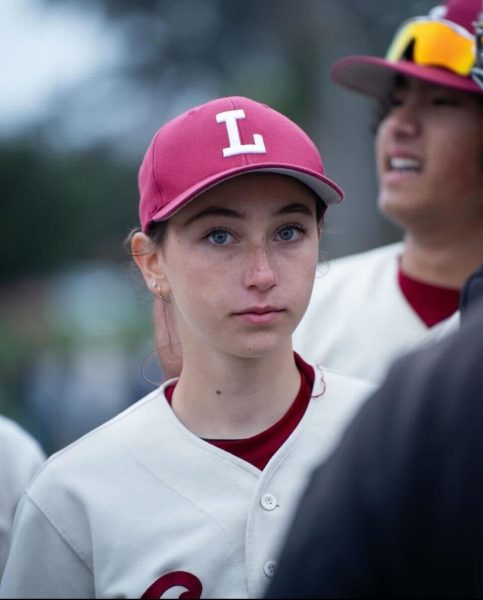

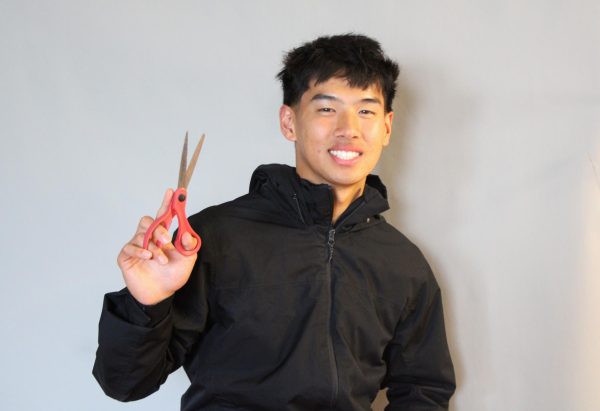
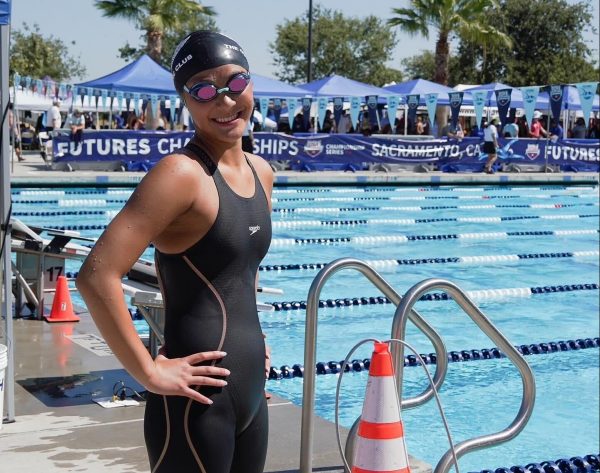
Andrew Ishibashi • Aug 2, 2019 at 2:51 pm
Thank you for the beautiful article! It’s nice to see you Pierre! My dad passed away Saturday. I’m glad that I was able to spend many vacations with him throughout his lifetime. I wish the entire community a safe and prosperous new school year! See y’all in November!